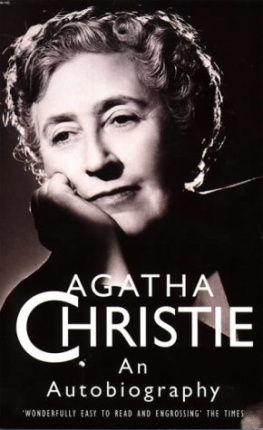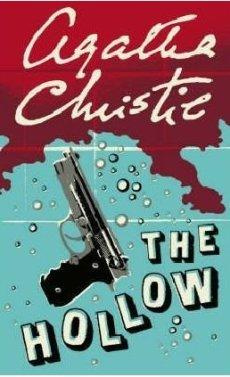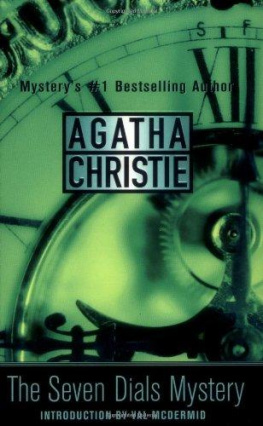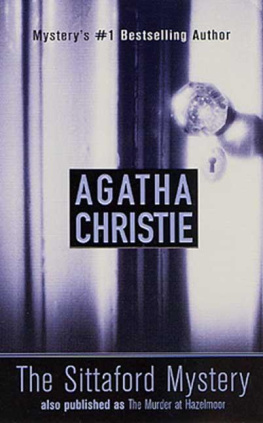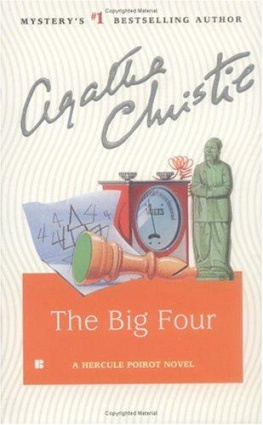Agatha Christie - Ordeal by Innocence
Here you can read online Agatha Christie - Ordeal by Innocence full text of the book (entire story) in english for free. Download pdf and epub, get meaning, cover and reviews about this ebook. genre: Detective and thriller. Description of the work, (preface) as well as reviews are available. Best literature library LitArk.com created for fans of good reading and offers a wide selection of genres:
Romance novel
Science fiction
Adventure
Detective
Science
History
Home and family
Prose
Art
Politics
Computer
Non-fiction
Religion
Business
Children
Humor
Choose a favorite category and find really read worthwhile books. Enjoy immersion in the world of imagination, feel the emotions of the characters or learn something new for yourself, make an fascinating discovery.

- Book:Ordeal by Innocence
- Author:
- Genre:
- Rating:4 / 5
- Favourites:Add to favourites
- Your mark:
- 80
- 1
- 2
- 3
- 4
- 5
Ordeal by Innocence: summary, description and annotation
We offer to read an annotation, description, summary or preface (depends on what the author of the book "Ordeal by Innocence" wrote himself). If you haven't found the necessary information about the book — write in the comments, we will try to find it.
Ordeal by Innocence — read online for free the complete book (whole text) full work
Below is the text of the book, divided by pages. System saving the place of the last page read, allows you to conveniently read the book "Ordeal by Innocence" online for free, without having to search again every time where you left off. Put a bookmark, and you can go to the page where you finished reading at any time.
Font size:
Interval:
Bookmark:
Agatha Christie
Ordeal by Innocence
Chapter 1
It was dusk when he came to the ferry.
He could have been there much earlier. The truth was, he had put it off as long as he could.
First his luncheon with friends in Redquay; the light desultory conversation, the interchange of gossip about mutual friends all that had meant only that he was inwardly shrinking from what he had to do. His friends had invited him to stay on for tea and he had accepted. But at last the time had come when he knew that he could put things off no longer.
The car he had hired was waiting. He said goodbye and left to drive the seven miles along the crowded coast road and then inland down the wooded lane that ended at the little stone quay on the river.
There was a large bell there which his driver rang vigorously to summon the ferry from the far side.
"You won't be wanting me to wait, sir?"
"No," said Arthur Calgary. "I've ordered a car to meet me over there in an hour's time to take me to Drymouth."
The man received his fare and tip. He said, peering across the river in the gloom: "Ferry's coming now, sir."
With a soft-spoken good night he reversed the car and drove away up the hill. Arthur Calgary was left alone waiting on the quayside. Alone with his thoughts and his apprehension of what was in front of him. How wild the scenery was here, he thought. One could fancy oneself on a Scottish loch, far from anywhere. And yet, only a few miles away, were the hotels, the shops, the cocktail bars and the crowds of Redquay. He reflected, not for the first time, on the extraordinary contrasts of the English landscape.
He heard the soft splash of the oars as the ferry boat drew in to the side of the little quay. Arthur Calgary walked down the sloping ramp and got into the boat as the ferryman steadied it with a boathook. He was an old man and gave Calgary the fanciful impression that he and his boat belonged together, were one and indivisible.
A little cold wind came rustling up from the sea as they pushed off.
"Tis chilly this evening," said the ferryman.
Calgary replied suitably.
He further agreed that it was colder than yesterday.
He was conscious, or thought he was conscious, of a veiled curiosity in the ferryman's eyes. Here was a stranger. And a stranger after the close of the tourist season proper. Moreover, this stranger was crossing at an unusual hour too late for tea at the cafe by the pier. He had no luggage so he could not be coming to stay. (Why, Calgary wondered, had he come so late in the day? Was it really because, subconsciously, he had been putting this moment off? Leaving as late as possible, the thing that had to be done?) Crossing the Rubicon the river the river his mind went back to that other river the Thames .
He had stared at it unseeingly (was it only yesterday?) then turned to look again at the man facing him across the table. Those thoughtful eyes with something in them that he had not quite been able to understand. A reserve, something that was being thought but not expressed
"I suppose," he thought, "they learn never to show what they are thinking."
The whole thing was pretty frightful when one came right down to it. He must do what had to be done and after that
He frowned as he remembered the conversation yesterday. That pleasant, quiet, non-committal voice, saying: "You're quite determined on your course of action, Dr. Calgary?"
He had answered, hotly: "What else can I do? Surely you see that? You must agree? It's a thing I can't possibly shirk."
But he hadn't understood the look in those withdrawn grey eyes, and had been faintly perplexed by the answer.
"One has to look all around a subject consider it from all aspects." "Surely there can be only one aspect from the point of view of justice?"
He had spoken hotly, thinking for a moment that this was an ignoble suggestion of "hushing up" the matter.
"In a way, yes. But there's more to it than that, you know. More than shall we say justice?"
"I don't agree. There's the family to consider."
And the other had said quickly: "Quite oh, yes quite. I was thinking of them."
Which seemed to Calgary nonsense! Because if one were thinking of them
But immediately the other man had said, his pleasant voice unchanged: "It's entirely up to you, Dr. Calgary. You must, of course, do exactly as you feel you have to do."
The boat grounded on the beach. He had crossed the Rubicon.
The ferryman's soft West Country voice said: "That will be four-pence, sir, or do you want a return?"
"No," Calgary said. "There will be no return." (How fateful the words sounded!) He paid. Then he asked: "Do you know a house called Sunny Point?"
Immediately the curiosity ceased to be veiled. The interest in the old man's eyes leaped up avidly.
"Why, surely. 'Tis there, up along to your right you can just see it through them trees. You go up the hill and along the road to the right, and then take the new road through the building estate. 'Tis the last house at the very end."
"Thank you."
"You did say Sunny Point, sir? Where Mrs. Argyle "
"Yes, yes," Calgary cut him short. He didn't want to discuss the matter. "Sunny Point."
A slow and rather peculiar smile twisted the ferryman's lips. He looked suddenly like an ancient sly faun.
"It was her called the house that in the war. It were a new house, of course, only just been built hadn't got a name. But the ground 'tis built on that wooded spot Viper's Point, that is! But Viper's Point wouldn't do for her not
for the name of her house. Called it Sunny Point, she did. But Viper's Point's what we all us call it."
Calgary thanked him brusquely, said good evening, and started up the hill. Everyone seemed to be inside their houses, but he had the fancy that unseen eyes were peering through the windows of the cottages; all watching him with the knowledge of where he was going.
Saying to each other, "He's going to Viper's Point" Viper's point. What a horribly apposite name that must have seemed
For sharper than a serpent's tooth
He checked his thoughts brusquely. He must pull himself together and make up his mind exactly what he was going to say
Calgary came to the end of the nice new road with the nice new houses on either side of it, each with its eighth of an acre of garden; rock plants, chrysanthemums, roses, salvias, geraniums, each owner displaying his or her individual garden taste. At the end of the road was a gate with Sunny Point in Gothic letters on it. He opened the gate, passed through, and went along a short drive. The house was there ahead of him, a well-built, characterless modern house, gabled and porched. It might have stood on any good-class suburban site, or a new development anywhere. It was unworthy, in Calgary 's opinion, of its view. For the view was magnificent. The river here curved sharply round the point almost turning back on itself. Wooded hills rose opposite; up-stream to the left was a further bend of the river with meadows and orchards in the distance.
Calgary looked for a moment up and down the river.
One should have built a castle here, he thought, an impossible, ridiculous, fairy tale castle! The sort of castle that might be made of gingerbread or of frosted sugar.
Instead there was good taste, restraint, moderation, plenty of money and absolutely no imagination. For that, naturally, one did not blame the Argyles. They had only bought the house, not built it. Still, they, or one of them (Mrs. Argyle?) had chosen it
He said to himself: "You can't put it off any longer " and pressed the electric bell beside the door.
He stood there, waiting. After a decent interval he pressed the bell again.
He heard no footsteps inside but, without warning, the door swung suddenly open.
Font size:
Interval:
Bookmark:
Similar books «Ordeal by Innocence»
Look at similar books to Ordeal by Innocence. We have selected literature similar in name and meaning in the hope of providing readers with more options to find new, interesting, not yet read works.
Discussion, reviews of the book Ordeal by Innocence and just readers' own opinions. Leave your comments, write what you think about the work, its meaning or the main characters. Specify what exactly you liked and what you didn't like, and why you think so.

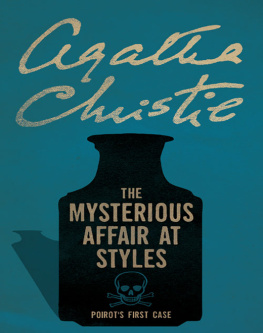
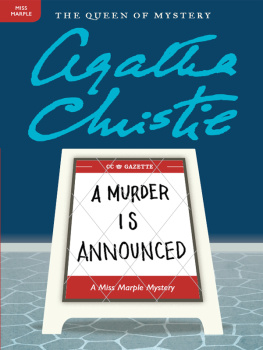
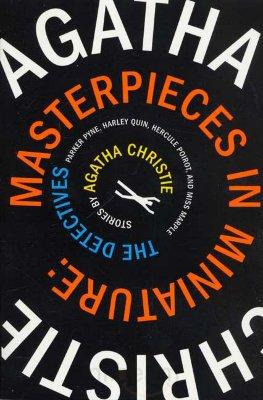
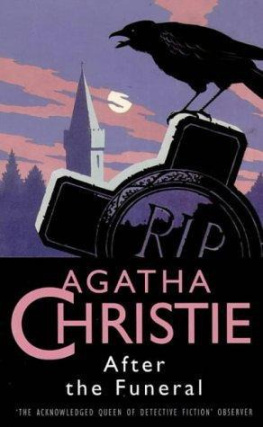
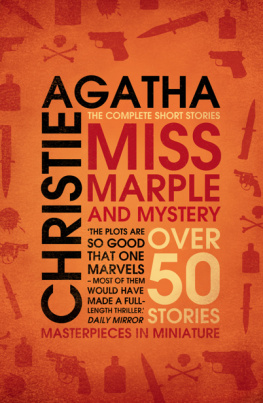
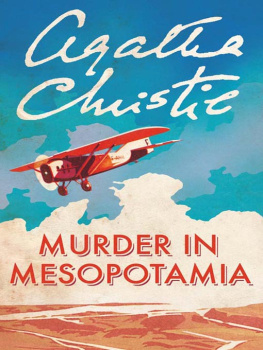
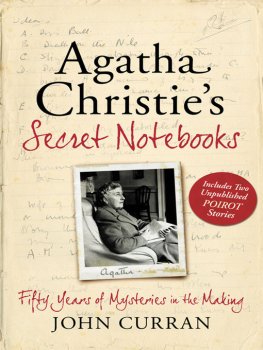
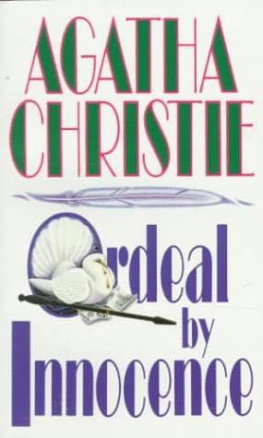
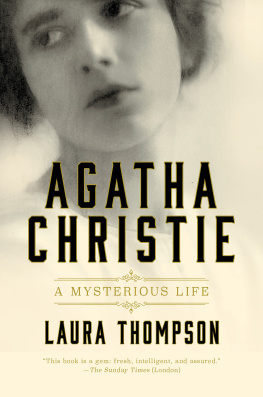

![Agatha Christie [Agatha Christie] - Problem at Pollensa Bay](/uploads/posts/book/140367/thumbs/agatha-christie-agatha-christie-problem-at.jpg)
